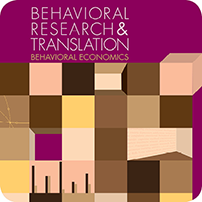Empirical Demand Functions and Implications for Public Policy


Steven R. Hursh, Johns Hopkins School of Medicine
Dr. Steven R. Hursh received his BA from Wake Forest University in 1968 and his Ph.D. from the University of California, San Diego in 1972. He is the president of the Institutes for Behavior Resources and adjunct professor of Behavioral Biology at Johns Hopkins University School of Medicine. Dr. Hursh has over 40 years' experience as a researcher and is author of over 80 articles, book chapters, and books. He is a former associate editor of the Journal of the Experimental Analysis of Behavior. His seminal article on economic concepts for the analysis of behavior is considered one of the most significant articles in the history of the journal. Dr. Hursh has been a key figure in the establishment of behavioral economics as a major conceptual area. His research papers have introduced into the behavioral vocabulary a number of "household terms" in behavioral psychology: open and closed economies, demand curves and demand elasticity, unit price, substitution and complementarity, Pmax, Omax, and recently essential value based on exponential demand that has broad generality across species and reinforcers. His extensions to drug abuse and the framing of drug abuse policy have had a major impact on the direction of research on substance use disorders.
Abstract: A fundamental tenant of behavior analysis is that operant behavior is strengthened by its consequences and that the strength of a reinforcer determines the strength of the behavior it supports. Behavioral economics provides a framework for understanding and measuring reinforcer strength, and by implication, the strength of the behavior it supports. At the same time, government policy is often directed toward creating conditions that encourage changes in the strength of certain behaviors, such as substance abuse, unhealthy dietary habits, cigarette smoking, wasteful use of energy resources, and excessive use of hydrocarbon products. Behavior analysis provides empirical tools for measuring behavioral strength and demand for reinforcers. An empirical model of demand defines how reinforcer consumption varies as a function of the requirements to obtain the reinforcer (price) and a number of recent studies have verified the feasibility of measuring empirical demand functions in human volunteers. Behavioral economics provides a conceptual link between empirical studies of behavioral strength and how government policy might alter that strength. Effective government policy can apply this knowledge to alter community behavior by arranging various conditions that affect the costs and benefits of selected behaviors, through penalties, taxes, refunds, tax deductions, or opportunity costs. Taken together, behavior analysis provides the empirical tools and behavioral economics provides the bridge between behavioral data and the economic implications for regulatory initiatives.